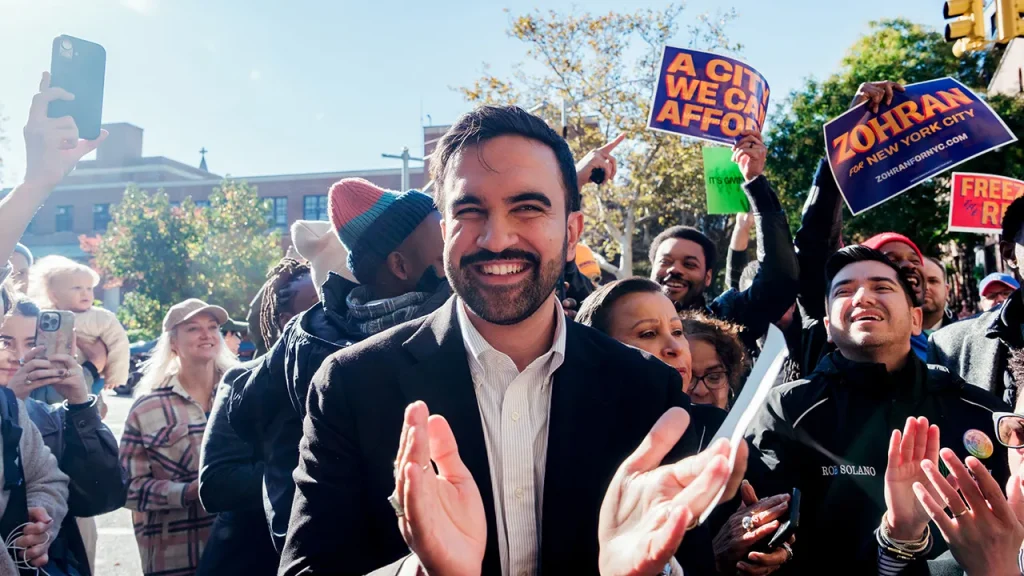Raskin Compares NYC Mayoral Candidate Mamdani to FDR, Sparking Political Debate
In a bold political endorsement, Progressive Representative Jamie Raskin has drawn parallels between New York City mayoral candidate Zohran Mamdani and one of America’s most transformative presidents, Franklin Delano Roosevelt. The Maryland Democrat released a campaign-funded video on Tuesday as New York City voters headed to the polls, describing Mamdani as possessing “Rooseveltian ambition.” This comparison comes at a critical moment in the mayoral race, with Raskin attempting to reframe Mamdani’s socialist identification in historical American terms. “They’ve been able to scare a lot of people with, ‘Oh, he’s a socialist.’ He’s a Democratic socialist. He’s an FDR Democrat,” Raskin explained in the video while standing alongside Mamdani, who responded by calling it “the highest compliment you can receive.”
The video strategically invokes Roosevelt’s famous 1936 Madison Square Garden speech where FDR defiantly confronted what Raskin termed “the lords of capitalism.” In that historic address, Roosevelt declared, “We had to struggle with the old enemies of peace — business and financial monopoly, speculation, reckless banking, class antagonism, sectionalism, war profiteering,” adding that these forces were “unanimous in their hate for me — and I welcome their hatred.” By drawing this parallel, Raskin attempts to position Mamdani’s democratic socialism not as a radical foreign ideology but as part of an American progressive tradition that dates back to the New Deal era. The video concludes with Raskin’s emphatic statement: “This is Zohran. He is Roosevelt in ambition.”
Interestingly, Mamdani himself could never follow Roosevelt’s path to the presidency, having been born in Uganda and thus constitutionally ineligible for the nation’s highest office. Nevertheless, his rising prominence within progressive circles demonstrates a significant shift in Democratic politics, particularly in urban centers like New York City. Mamdani, currently serving as a New York State assemblyman, has achieved remarkable prominence among the progressive left, becoming something of a political star despite—or perhaps because of—his open embrace of socialist principles that have drawn criticism from both Republicans and moderate Democrats. His candidacy represents a testing ground for how far left Democratic politics can successfully move in a major American city.
The response to Mamdani’s mayoral bid has created notable fissures within the Democratic Party, revealing tensions between progressive and moderate factions. House Minority Leader Hakeem Jeffries eventually endorsed Mamdani after significant pressure from progressive Democrats, while Senate Minority Leader Chuck Schumer has conspicuously refused to reveal his voting choice even when directly questioned on Election Day. This split extends beyond party leadership, with Representative Tom Suozzi taking the extraordinary step of crossing party lines to endorse former Democratic Governor Andrew Cuomo, who is running as an independent candidate. These divisions highlight the broader ideological struggle within the Democratic Party as it navigates between progressive ambitions and centrist pragmatism.
Raskin’s comparison of Mamdani to FDR serves a strategic purpose beyond simple endorsement—it attempts to domesticate and historicize democratic socialism by connecting it to America’s political past rather than to international movements. By invoking Roosevelt, who implemented sweeping government programs during the Great Depression while maintaining broad popular support, Raskin suggests that Mamdani’s policy agenda represents not a radical departure but a return to ambitious Democratic governance. This framing challenges critics who portray democratic socialism as foreign or un-American by anchoring it within one of the most consequential American presidencies. Whether this recontextualization will resonate with New York City voters remains to be seen, but it represents a sophisticated attempt to shift the narrative around democratic socialism in American politics.
The mayoral race in New York City has thus become more than a local contest—it now serves as a barometer for the Democratic Party’s ideological direction and the viability of progressive candidates in major elections. Mamdani’s candidacy tests whether explicitly democratic socialist candidates can win executive positions in America’s largest city, potentially establishing a model for progressive governance that could influence Democratic politics nationwide. As voting continues in New York City, the outcome will be closely watched not just for its immediate impact on city governance but for what it suggests about the future direction of the Democratic Party and American progressive politics. Whether voters embrace or reject Raskin’s Roosevelt comparison may reveal much about the boundaries of acceptable political discourse in contemporary America.


